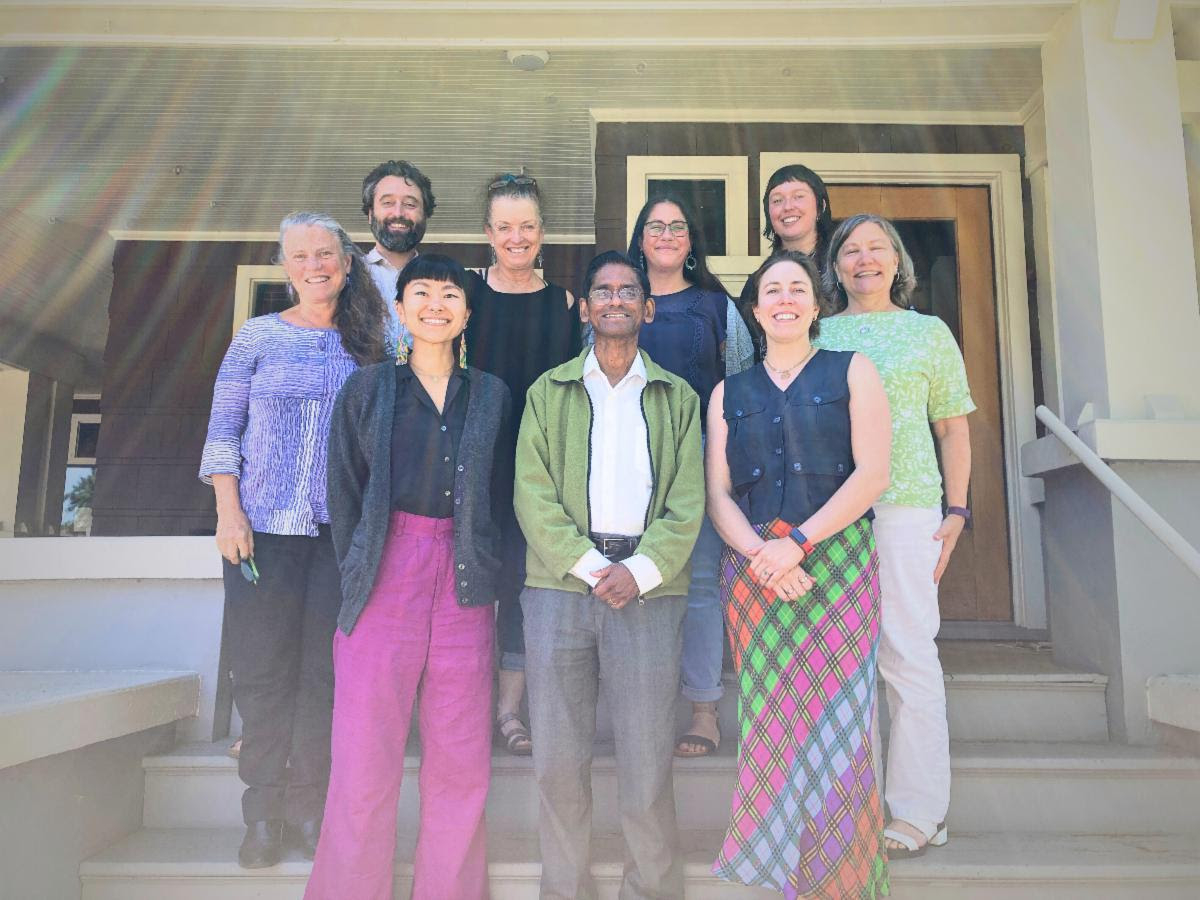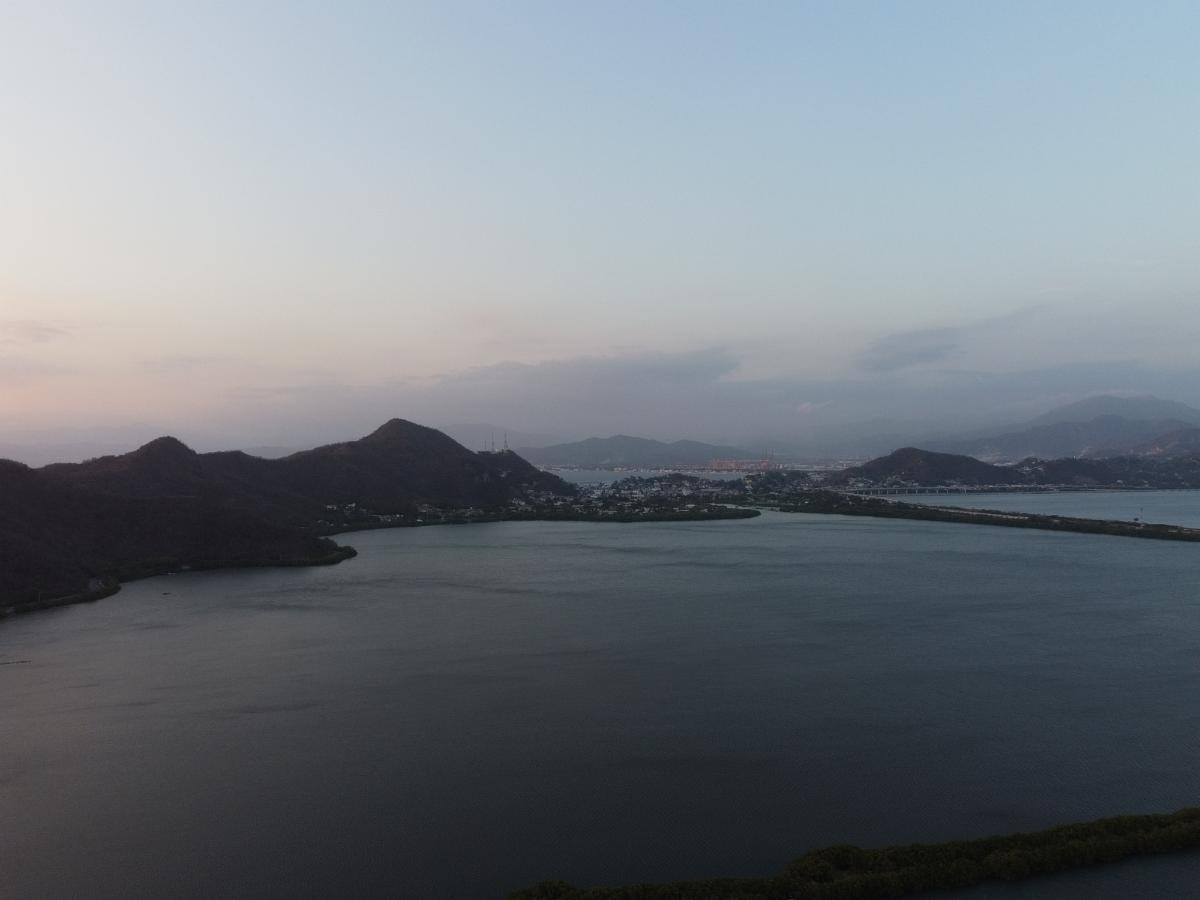Proposed Port in Critical Mexico Wetland Withdrawn

Dear Friends,
Bern’s leadership of the ELAW team is a hard act to follow. I want to thank him for his vision, commitment, and achievements. He leaves ELAW in a strong position. As I look forward and embrace this new office, the world is changing dramatically. My task will be to move ELAW into its next orbit, enabling it to more effectively assist our partners in their challenging environmental work. The ELAW team has grown quickly over the past five years. I have begun consulting with team members, partners, funders, and the Board, and will develop an action plan to address the organization’s and network’s evolving needs. I have enjoyed spending time in Eugene this past couple of weeks and working with some colleagues in person.
I’m pleased to report on an exciting recent development in ELAW’s work with partners in Mexico.
Plans for an enormous port expansion in Cuyutlán Lagoon on the Pacific Ocean threaten Mexico’s fourth-largest coastal wetland. ELAW partners at Tsikini share good news: developers have withdrawn their request for environmental authorization for the project.
The ELAW Science Team collaborated with Tsikini to raise the alarm about the potential environmental impacts on the Ramsar wetland of international importance, home to incredibly diverse flora and fauna, including cacti forests, mangroves, threatened reptiles, migratory and endemic birds, fish, and invertebrates. Tsikini helped elevate the concerns voiced by local communities, particularly fishermen, who rely on the lagoon for their livelihoods.

Adriana Cadenas of Tsikini says the withdrawal of the Manzanillo Port expansion project by the developer (the National Port System Administration, Asipona of Manzanillo) “has multifaceted significance encompassing environmental, social, and planning aspects.” She adds: “While withdrawal does not necessarily mean the complete cancellation of the project, authorities are demanding a comprehensive environmental reassessment of all stages of the project for it to be
resubmitted for consideration. This represents an opportunity for more comprehensive studies to be conducted, which should show how local industrial activities have already caused harm to the health of local communities, their economic activities, and this rich ecosystem.”
Tsikini will closely monitor the process and re-engage when a new environmental impact assessment (EIA) is submitted, to ensure it includes a robust public consultation that makes information available to all potentially impacted stakeholders, provides sufficient time for the community and experts to analyze the EIA, and creates effective spaces for dialogue to ensure that community voices are heard and responded to in an accountable manner.
“We often see project proponents submitting projects one phase at a time,” says ELAW Scientist Dr. Fernanda Salinas. “This project fragmentation seeks to minimize the perception of impact at each stage, hindering holistic assessment and public scrutiny. A comprehensive EIA requires putting all the cards on the table, allowing for an assessment of the cumulative and synergistic impacts on the ecosystem and communities. This is essential for well-informed decision-making.”
The ELAW Team looks forward to collaborating with Tsikini to evaluate the new EIA when it is submitted.
Sincerely,

Dr. Lalanath de Silva
Executive Director
Environmental Law Alliance Worldwide
Support from Arcadia — a charitable fund of Lisbet Rausing and Peter Baldwin — helps make it possible for ELAW to collaborate with grassroots lawyers protecting endangered biodiversity and ecosystems in dozens of countries around the world.

Read more about the proposed port expansion:
ASIPONA withdraws its request for environmental authorization for the Port of Nuevo Manzanillo. June 18, 2025
ASIPONA Manzanillo cancels environmental procedures for Puerto Nuevo. June 23, 2025
Gaceta Ecológica 2025. June 19, 2025
Photo 2 caption: Tsikini

